Now that I sit at a desk all day, the massage I’m about to receive is needed. It’s my first appointment of four at EPIC Health. The women behind the company are identical twin sisters Dr. Emmalee Shaheen LeBlanc and Kellee Shaheen Powell. LeBlanc is a naturopathic doctor; Powell is a certified personal trainer and pilates instructor.
In addition to the sisters, you’ll find Lauren Burk, a licensed massage therapist
and aesthetician, and Scotti Vige Call, an acupuncturist and chinese herbalist.
Back to the massage. Burk’s massage is good, but not quite deep enough for me. I’m someone who likes super deep pressure. She asked if the pressure was good and I said yes (people pleaser problems); so, it’s not her fault.
After 30 minutes, I flip over and she starts my facial. It is the most relaxing facial I’ve ever received. I doze off a few times while she’s rubbing the different potions into my face.
“I try to focus completely on my clients and take my time with them. This is a time to rest,” Burk says. That really comes through. I ask her if she has any tips for me. “Less is more. In skincare it’s important to build a healthy base regimen.”
I walk one door down the hall to Dr. Emmalee LeBlanc’s office for my next appointment. Before I came today, she emailed me a questionnaire. Leblanc takes a complete medical history, easily the most extensive history I’ve ever given.
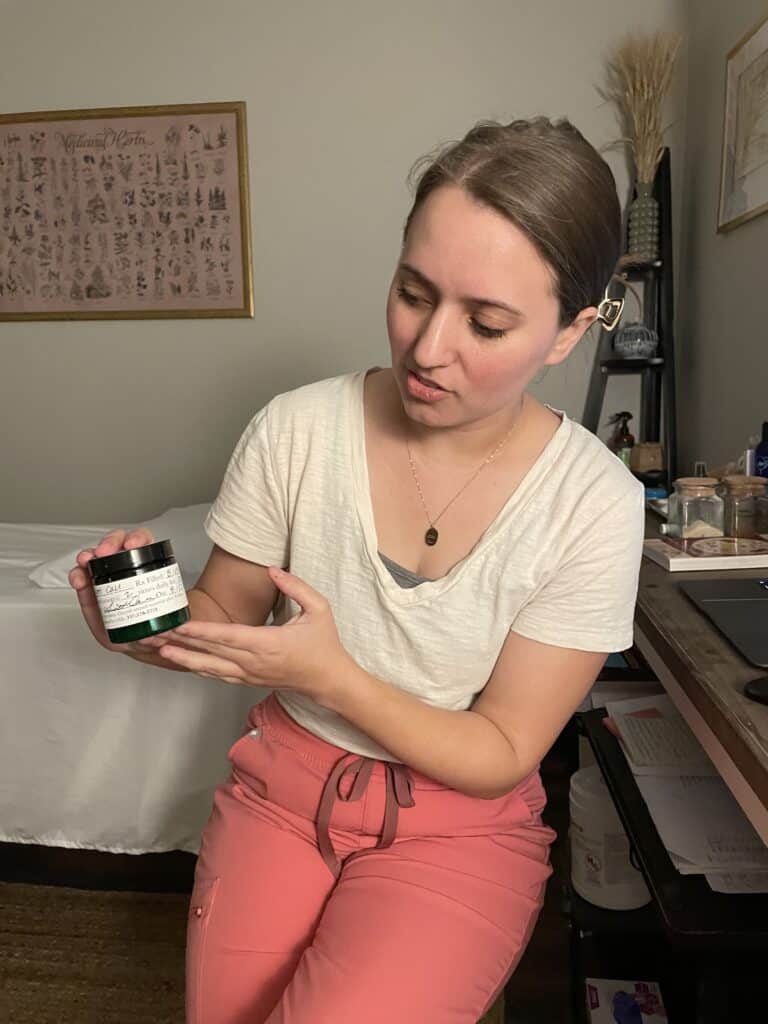
“A lot of people don’t notice that their symptoms start around the same time they were going through a particularly difficult or stressful time in their life.” LeBlanc says it’s all connected.
Her grandfather, who passed away when she was 5, was a doctor, and she knew from a young age she’d work in the medical field just like he did. Family members often tell her if he were alive today he would be a natural-minded, prevention-focused doctor like she is.
LeBlanc majored in kinesiology at LSU and was torn between going the pre-med or physician assistant route. When she met her first naturopathic doctor, she “didn’t even know what that was. Most people in our area don’t.” It felt like the perfect fit for her. LeBlanc visited a naturopathic medical school in Arizona, one of five in the United States, and fell in love. The rest was history.
“The first two years are traditional medical school years, and the last two are more natural approaches followed by clinicals,” LeBlanc says. Medical school board exams for naturopathic doctors are a “grueling, three-day long process.” Students are tested on their knowledge of pharmacology and natural medicine (herbs, homeopathy, supplements and diet). In addition to the standard boards, LeBlanc also took elective boards in acupuncture and minor surgery.
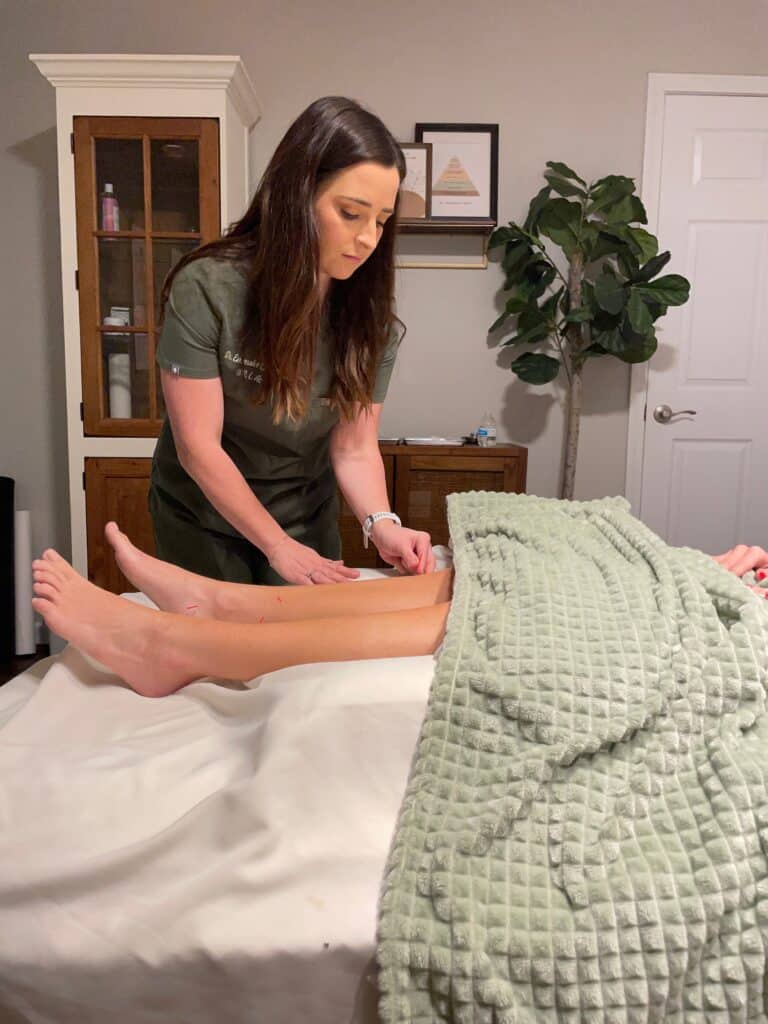
“How’s your sleep been,” she asks. “Actually, I’ve been having really intense dreams lately,” I say. She nods. Apparently, I’m not telling her anything she doesn’t already know. One look at my tongue was all it took.
I lay down on the bed and LeBlanc inserts tiny needles into my ear, hand and foot. I can feel some of them, but none of them hurt. She points a heat lamp at my feet, turns down the lights and leaves me to rest. How long she’s gone, I don’t know. My day at EPIC is proving to be a very relaxing one.
LeBlanc knows where to insert the needles based on the information she’s gathered from my medical history, tongue and pulse.
Acupuncture is a form of traditional Chinese medicine. Practitioners believe the body’s energy flow (or Qi, pronounced “chee”) is responsible for overall health and that the disruption of the energy flow can cause disease. By applying acupuncture to certain points, the flow of Qi is improved, thereby improving health.
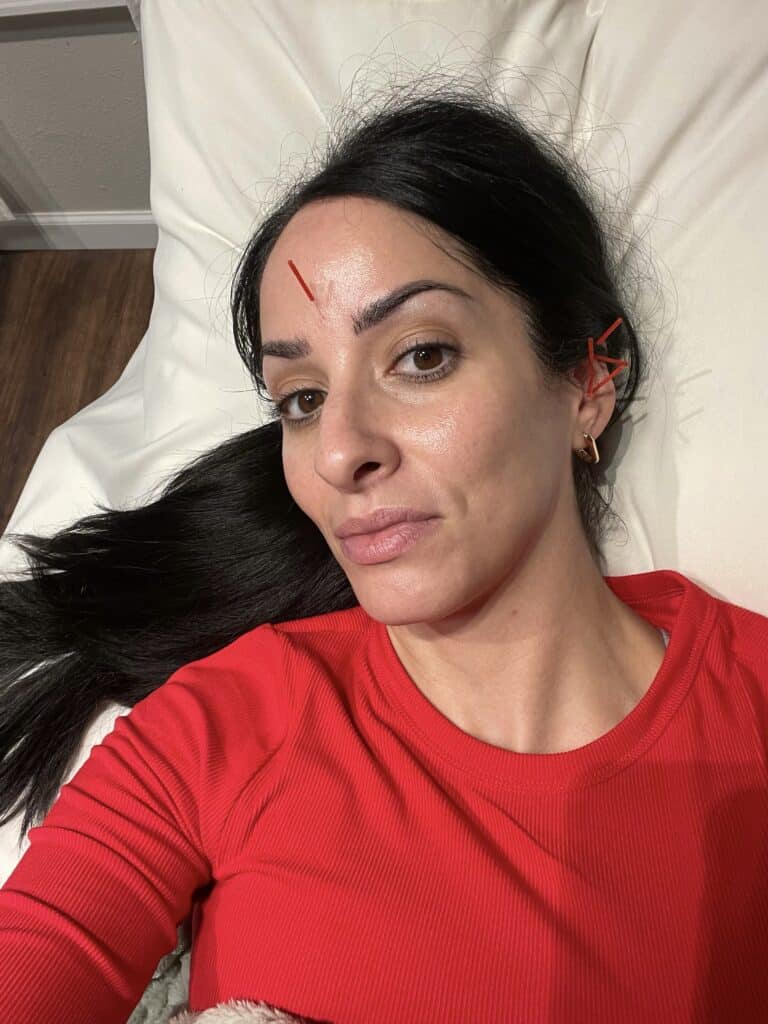
In a state like Louisiana, naturopathic doctors need a working relationship with a primary care provider. LeBlanc says that’s been difficult to cultivate. Mostly because of how busy physicians are, but also because of a lack of education and misinformation.
“People confuse naturopaths with naturopathic doctors. Anyone can go online and receive a naturopath certification. I’m trying to find a physician to work with collaboratively,” she says. “One of the main ways it would help my patients is when we order labs.” LeBlanc isn’t able to bill those labs to insurance.
“There are some naturopathic doctors who practice anti-conventional medicine. That’s not me. I think it should be a partnership. When it comes to most doctors in this area, the natural realm scares them. Which is so unfortunate,” says LeBlanc. “In states like Arizona and California, it’s very different than it is here. Naturopathic doctors are often primary care physicians with a DEA number. They prescribe medicine and perform minor surgery.”
(It’s important that I mention this is not my first time meeting LeBlanc. A couple years ago I was in her office because my everyday stomach aches were interfering with my life. I was under her care for three months. At the end of the three months, I was completely pain free. This was a big deal. I have had stomach problems on and off since I was a kid. No doctor — not even my own dad, who’s an OBGyn — has ever been able to figure out why or cure me. I have been singing her praises ever since.)
My next appointment is with Scotti Call. Call is an herbalist who specializes in Chinese medicine and before I enter her room, I don’t even know what that means. Call experienced a debilitating ski injury and sought relief from several different traditional practitioners. Nothing helped, but one of them suggested herbal medicine. Call is a no-nonsense type of woman and she didn’t expect for something that sounded as woo-woo as herbal medicine to work. Eventually she realized she had nothing to lose and gave it a shot.
“The next day after trying herbs, I was 50-percent better. I immediately went and signed up for school,” Call says. “People here think this is witchy or, like I used to, woo-woo or they think they can go on Amazon and treat themselves with herbs they find online.”
Call says everything they do is evidence based. “Dr. LeBlanc can draw your labs; we’ll treat the patient with herbs or acupuncture, and then we can re-draw and see how those treatments worked.”
Call eventually finds her way to bowel movement questions, too. Apparently, what happens in the bathroom can tell us a lot about our health. “Many of my patients are suffering from autoimmune disorders or are women trying to get pregnant.”
One of the interesting tidbits we discuss is about seasonal living. In Chinese medicine the seasons are further divided into 24 sub-seasons. Each comes with a series of suggestions like the types of food we should be eating and how we should behave. “Warm your ears and feet and nourish the kidneys,” a recent instagram post of Call’s says. “Eat soups, root vegetables, black sesame seeds and bone broth.”
When Call hears that I’m a cold natured person (I’m usually cold when others are comfortable) she suggests I stay away from cold food since “this could be a yang deficiency.” (Later I go down an internet rabbit hole and am surprised at how much I learn about yin/yang and how the imbalances show up. A lot of it resonates with my experience!)
Call sends me off to my next appointment with herbs that are supposed to help me regulate my mood. I tend to have very high highs (happy, energetic, positive) and very low lows (weepy, easily frustrated, fatigued) that correspond with my cycle. Call says the herbs will help.
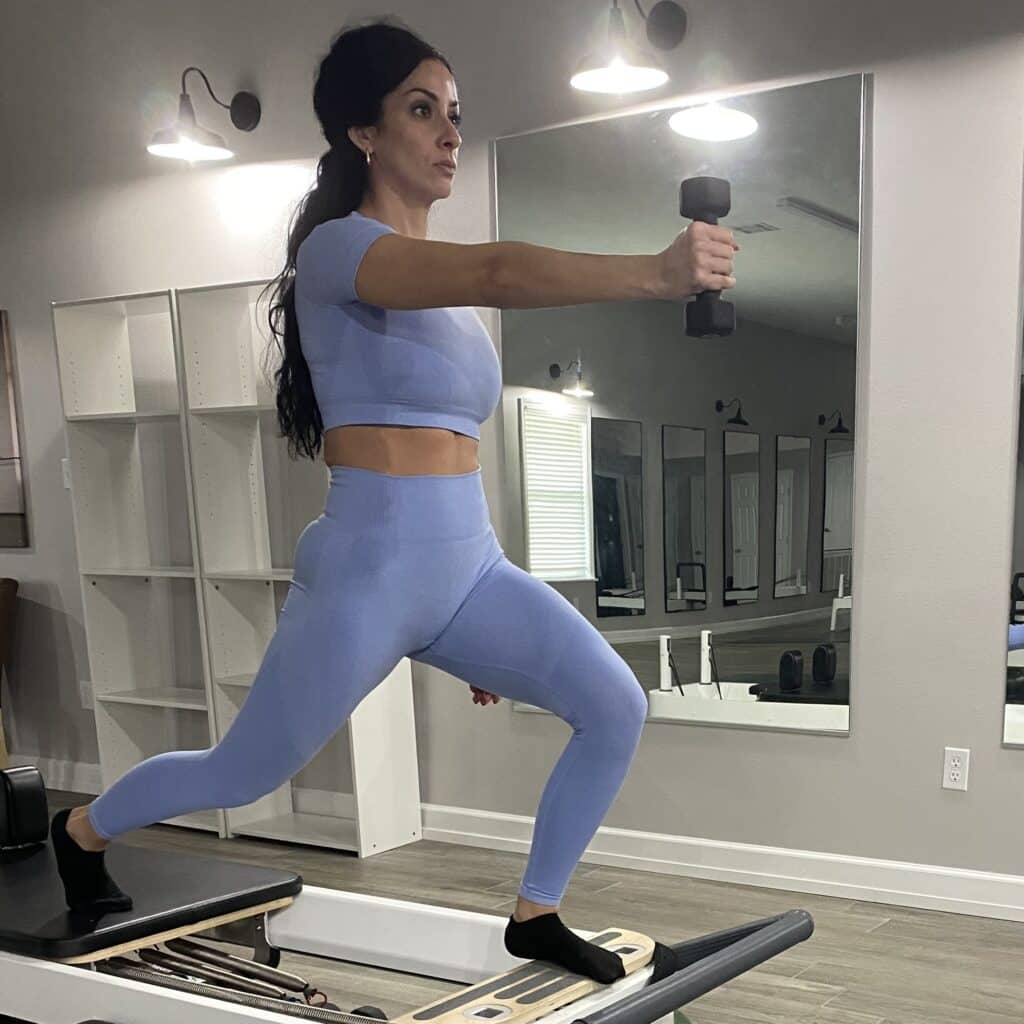
“Women usually have pelvic floor weakness. If you’re incontinent when, let’s say, doing jumping jacks or laughing that’s usually a sign. If you have back problems it could be because of weakness in your core. Pilates helps,” Powell says.
I slip the straps onto my ankles and try to follow Powell’s instructions (and try not to be self-conscious at how ridiculous I’m sure I look). I start sweating roughly two seconds into the workout. Pilates is no joke.
“I have a client who has a pacemaker and she recently went to get the battery replaced. When she did, they told her that her heart is conditioned so well that she added 4 years to the battery life of the pacemaker.”
What the women at EPIC have going on is different than anything else in our area. They’re not some woo-woo, anti-medicine practitioners, they’re all experts in their fields who are passionate about helping SWLA.
“My sister helped me get pregnant and managed my thyroid issue. My OB wanted to put me on birth control for perimenopause, but Emmalee healed me,” Powell says.
In my experience, everyone at EPIC Health is about 10 years ahead of Louisiana.
Have an idea for Diana’s next expe- rience? Let her know by emailing her at diana.vallette@gmail.com



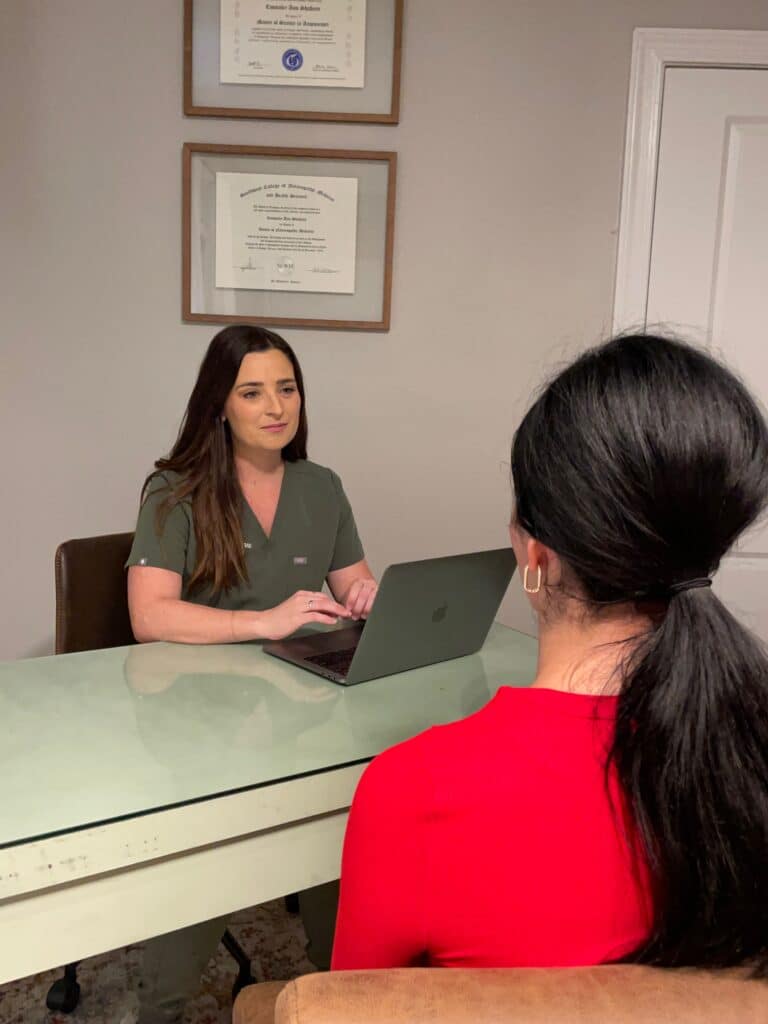
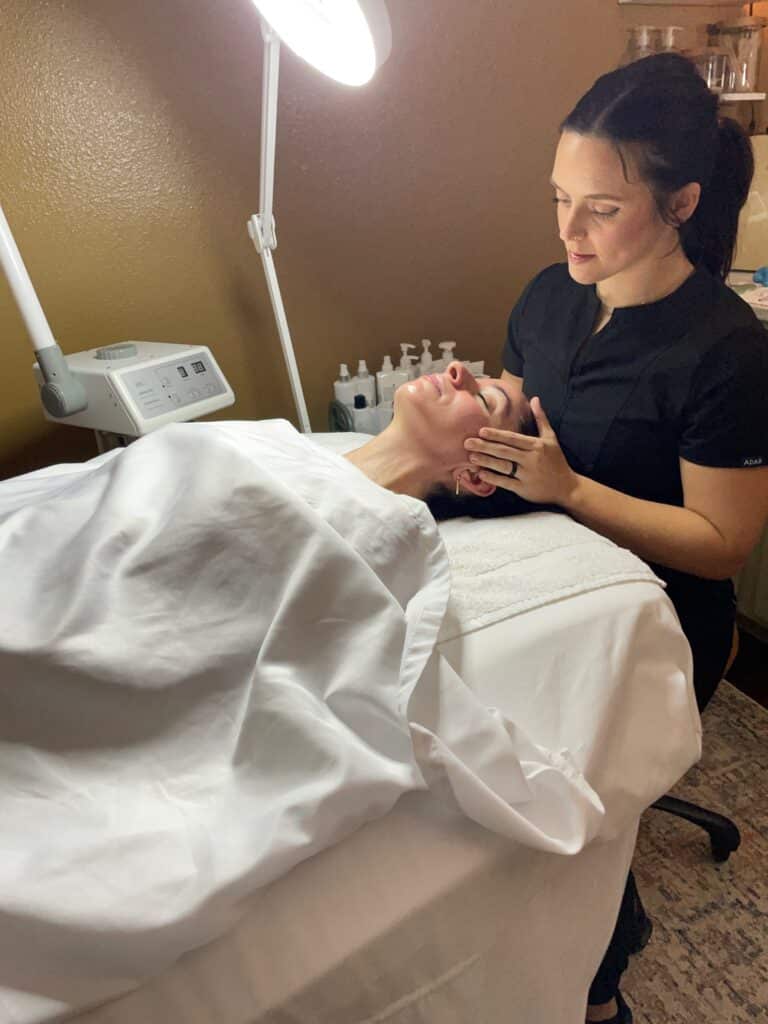











Comments are closed.